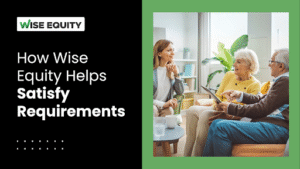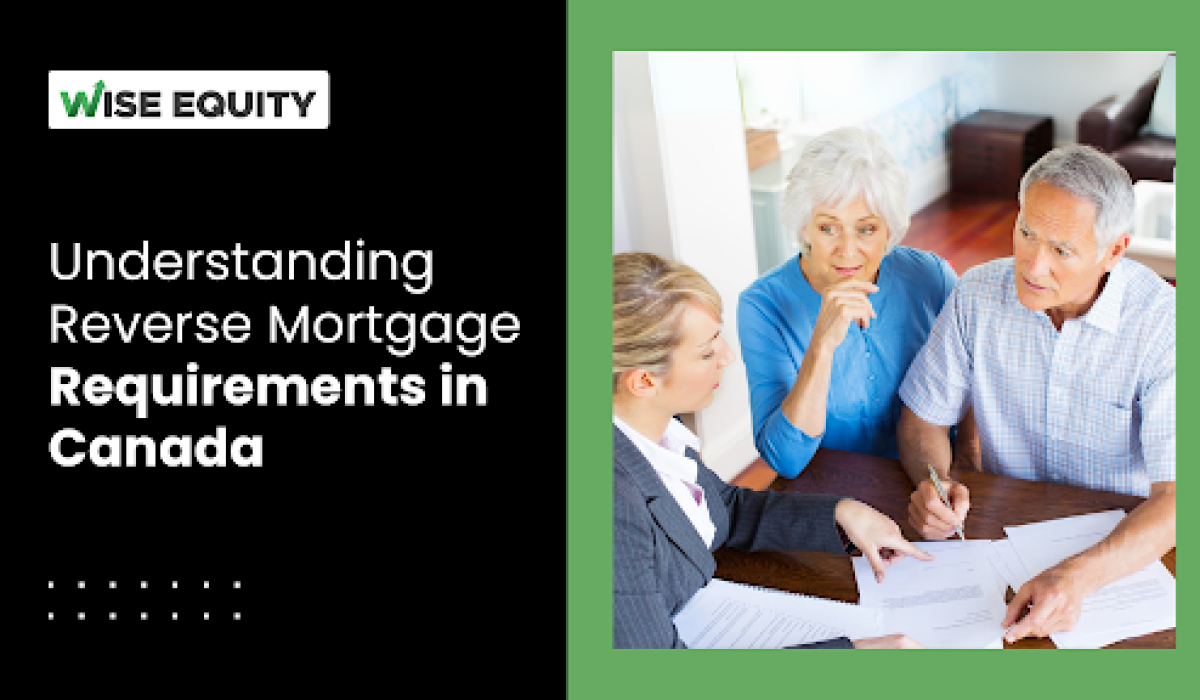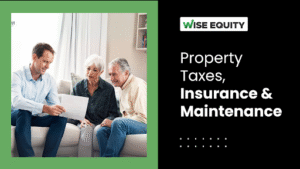As Canadian homeowners over 55 explore options to tap into home equity without selling, understanding the reverse mortgage requirements is crucial. Meeting these criteria ensures eligibility and avoids unpleasant surprises. In this article, we’ll walk you through all the essential requirements, discuss how they vary by province, and explain how Wise Equity helps clients navigate the process.
Age and Homeownership Criteria
One of the foremost reverse mortgage requirements is age. In Canada, most reverse mortgage programs require the homeowner to be at least 55 years old. Additionally, if the property title has multiple owners (for example, a married couple), all named owners must typically meet the age requirement.
You must also own your home, or have paid down most of your existing mortgage. Many lenders will require that any existing mortgage be repaid or substantially reduced before the reverse mortgage is granted.
Primary Residence and Property Conditions
Another key requirement is that your home must be your primary residence, meaning you live in it for most of the year. The reverse mortgage is usually not available for vacation homes or secondary properties. Also, the property should be in good condition — structurally sound and well-maintained. If there is significant physical deterioration, lenders may refuse approval or demand repairs before closing.
Further, the home should conform to accepted types: detached houses, townhouses, and some condominiums. Some remote or unusual property types may be excluded by certain lenders.
Equity, Value, and Loan Limits
A central part of reverse mortgage requirements is the amount of equity you hold in the home. You need significant equity; typically, at least 50% or more of your home’s value must already be debt-free.
The reverse mortgage amount is then determined based on your age, the home’s appraised value, and prevailing interest rates. Older applicants often qualify for larger percentages because of lower projected loan duration.
Lenders may also impose a maximum percentage of value you can borrow (for example, up to 55% of the home’s appraised value in some programs) to ensure that there is a buffer for interest growth over time.
Property Taxes, Insurance & Maintenance
To sustain the reverse mortgage over the life of the loan, you must keep up with property taxes, home insurance, and maintenance. If you fail to pay taxes or allow the home to deteriorate, the lender may declare default.
Maintaining your property in an acceptable condition is essential. That means you cannot defer major repairs or ignore structural issues because part of your eligibility depends on ongoing upkeep.
Legal & Counseling Requirements
Another often overlooked but mandatory requirement is independent legal advice. Most lenders require borrowers to receive legal counsel to fully understand how a reverse mortgage works (especially the terms, obligations, and impact on heirs).
Some programs also require you to attend a financial counseling session before approval, to ensure you understand the trade-offs.
Limitations & Provincial Variations
Reverse mortgage requirements can vary depending on the province. For instance, some lenders might exclude certain rural areas or properties in remote zones. The types of acceptable home structures or title arrangements might differ based on local real estate laws.
Also, if the property is jointly owned, lenders may require all owners to meet requirements, which can complicate eligibility.

How Wise Equity Helps Satisfy Requirements
Navigating these reverse mortgage requirements can be complex, particularly when dealing with appraisals, legal documents, and compliance. That’s where Wise Equity steps in. Their services include:
- Assessing initial eligibility (age, equity, property type)
- Coordinating appraisals and property evaluations
- Guiding clients through legal advice and documentation
- Structuring a reverse mortgage that meets both lender guidelines and personal goals
By working with knowledgeable advisors, homeowners can avoid common pitfalls and ensure smooth qualification.
Conclusion
Understanding the full range of reverse mortgage requirements is essential before applying. From meeting age criteria and owning your home to maintaining property and securing independent legal advice, each step matters.
When guided by experts like Wise Equity, navigating these rules becomes easier and more transparent. If you’re considering a reverse mortgage, start by reviewing your eligibility and consulting a trusted advisor — the right preparation can make all the difference.


